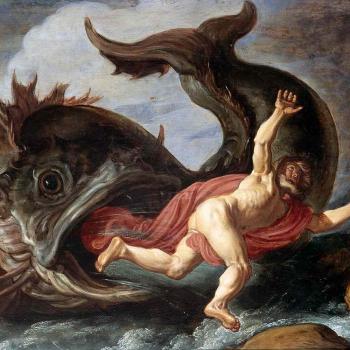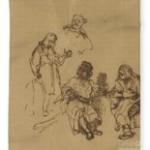 My wife is reading a novel — a novel about Scots and the English. So, the author cares about language and along the way he makes some pretty fine distinctions. One of them, she tells me, is the difference between venomous and poisonous.
My wife is reading a novel — a novel about Scots and the English. So, the author cares about language and along the way he makes some pretty fine distinctions. One of them, she tells me, is the difference between venomous and poisonous.
They might appear to be the same, but they aren’t. If something bites you and it makes you sick, it’s venomous. If you bite into something and it makes you sick, it’s poisonous. In one fairly humorous passage a snake escapes into the privy and there’s a fairly lengthy exchange about who’s going after the snake and the possible consequences if no one does.
But there’s a spiritual point here as well. It occurs to me that there are two spiritual perils in life. Some dangers lie in the things that bite us. Some dangers lie in the things into which we bite.
The spiritual perils that both the venomous and the poisonous present can make us all a bit OCD. Arguably there are entire approaches to the spiritual life that are so completely devoted to the task of fending off dangers of one kind or another that there is almost no element of joy and freedom in them. That can be destructive in and of itself, but anyone who ignores spiritual perils is a “fool” (i.e., someone hopelessly unaware) — as wisdom literature from Aesop’s fables to the books of Ecclesiastes and Proverbs makes clear.
So, wherein lies the solution? Spiritual awareness — the basic awareness that attends gently, but wisely, to the possible consequences of biting into things and of letting ourselves be bitten.
Many times, the snake and the poison are outward and inner expressions of the same thing:
Selfish people who model selfishness and the selfishness within
Callous people who treat others with contempt and the contempt within
A narcissistic culture that rewards narcissism and invites us to be equally self-absorbed
Other times, the thing that bites, is the thing that invites us to bite:
Like a Facebook post or a comment section that invites nasty responses, one after another, eliciting gang-like abuse
The difference between our world and the world of snakes is that we almost never consider biting back. But in our own world, the thing that bites us is often the mirror image of the thing we’ve been eating. When we convince ourselves that it doesn’t matter what we are eating and that we don’t need to be alert to the things around us that might bite, we aren’t nurturing freedom. We are exposing ourselves to venom and poison. The models of spiritual freedom are those who know both perils.
There have been countless systems developed for detecting the presence of spiritual venom and poison. The problem is that it is almost always easier to recognize a snake than it is to name a demon. And unlike the natural world, there is no fixed number of vipers out there to worry about, let alone the poison within.
The One who exhibited the greatest freedom knew the presence of both venom and poison — not by being overly occupied with the threats, but by being deeply, intimately familiar with God. And therein lies the ability to be alert, without being OCD. Evil doesn’t have power of its own. It gains power through absence of the Divine.
The more we know God and understand God, the easier it is to avoid biting and to avoid being bitten.












